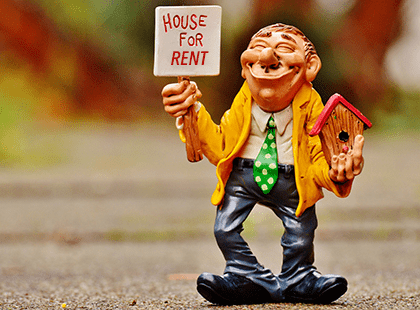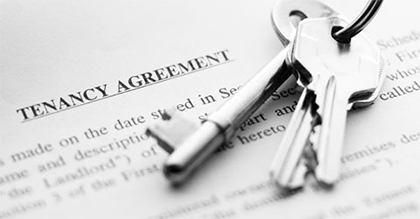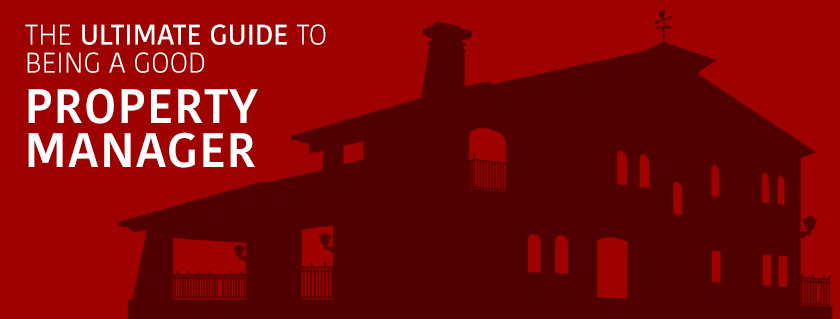Property is hot. Especially in Vancouver. The stock market is all over the place; interest rates are still very low. And for these reasons so many people are looking to buy into real estate and buy a lot of it. If you are one of these new property investors, who has bought one, two, or maybe more investment properties for your portfolio, this is a guide to that other part of your investment – property management.
It’s the part that often gets overlooked in the excitement of the buy. It lacks the glitzy appeal of high-stakes negotiation with its winners and losers. However, once you have the property, knowing how to do this part right is going to decide if it’s a great investment or a giant pain. Knowing how to get it rented, manage tenants, and protect your sizable investment is going to make or break this deal. Here’s what you need to consider.
Run Your Property as a Business
This might seem obvious, but many property investors fail this basic principle. If you owned a business, you would have a separate bank account for that business. You would set aside funds from your revenue for maintaining the business; you would make sure that the business has cash on hand to pay for services and to pay the taxes incurred on its earnings. Then, once all of that is covered the remaining revenue can is considered profit and dispersed to the owner. Many first-time property owners start out by simply depositing the rent cheques into their personal bank account and find very quickly that the lines get blurred between property expenses and personal earnings. They then find themselves in a pinch when the property has a larger expense, like a new roof and they haven’t set aside the appropriate funds.
Timing the Market

When you’re renting a residential property, it’s great if you can line up your product when demand is the greatest. This usually means preparing to rent your property when the renter is motivated to make a deal. Often this is towards the latter portion of the summer when families are looking to have their home secured, and kids enrolled in the local school. Another time that increases renter motivation is the month leading up to the Christmas holidays. Most families like to know they’re going to be settled through the busy holiday season in December. If you are renting multiple properties, it’s great if you can arrange to have your leases in sync for one of these high motivation time periods. This way when an annual lease expires, you are in a good rental period provided your tenant decides not to renew.
You Are Also the Marketing Department
Facebook, Twitter, Craigslist, Kijiji, you are going to want to be all over these to get your property out to where renters are looking. You need to give yourself the widest possible range of applications to choose from. It’s also best to set up a special email account to use just for rental inquiries. Keep it separate so as not to overwhelm your regular inbox. You’ll also want to enlist the services of a professional photographer. I know, you can snap a few photos. That’s what everyone says. But this is your investment. You need to take professional photos that sell it. Just as you use credit checks and references to find the perfect tenants, prospective renters will pass over places quickly based on poor photos that are not staged properly and don’t give the right impression.
Lawyer Up that Lease
I know, a simple Google search + municipality will give you a list of free-to-use leases that you can download and customize. But, that said, do you know that any of it is legally binding? Do you know that you are protecting your investment in the best way possible? You do not want to find yourself Googling: tenant broke the lease for X reason, do I have any recourse? Use a professional. If you work with a property lawyer in your area, they should have a standard lease that they can then help you tailor to your needs. This is not an area to cut corners. Make sure your lease is up to snuff!
Be Sure to Insure
In some ways, this falls into the category about running your investment as a business, but it’s important enough to warrant a mention. Insurance is uber-important. You are going to want to sit down with a broker to go through what is the best protection for your investment. You will need to establish your deductibles and make sure you have all the ‘what-ifs’ answered. If you are working with multiple properties, your broker will be able to help negotiate a better deal on a per unit basis.
Screening Tenants

Nobody enjoys this part. The initial phase can be enjoyable when you meet prospective tenants, and they are doing their best to charm you into renting them your property. Of course, relying on a good old fashioned handshake is a terrible business strategy. Once you have met with prospective tenants and gotten a good sense from them, you have to complete a couple of more steps. First and most importantly, the credit check. You need to know that there is a record of this person paying their debts. If they’re not good at this part, there is going to be a trail, and you can save yourself from becoming one of the people chasing them for money. The next bit is the reference check. Admittedly, this one can be less precise realizing the ease with which people can fake a reference these days and the potential for a current landlord to be motivated to move them on as tenants. That said, call their references, call their previous landlord(s). This info, combined with their credit rating will help you form a fuller picture of your prospective tenant.
Keeping Your Tenants Happy
If you’ve taken any business classes, no doubt you will have heard the expression that it’s easier to keep the customers you have than getting new ones. This applies to the world of property management as well. If you did your screening right (interview, credit check, reference checks), you hopefully would have secured a good tenant. Once they’re in place, you will want to do all you can to make sure they enjoy living there and prevent them from thinking they could have it better somewhere else. How do you accomplish this? Cashing their cheques on time, handling their issues quickly, and trying to anticipate their needs in advance is just the start. In some cases, it will mean making upgrades to the property to suit their needs. Does the property need a remote garage door opener? Could it do with some better landscaping? Are the outdoor fixtures providing adequate light? All of these could be simple upgrades to make your tenants feel more at home, and as a bonus, increase the perceived value of your property to future tenants.
Reinforcing Good Behaviour
Happy tenants usually do their best to keep you happy, and it’s always a good idea to reward good behaviour. Is their rent always on time? Have they taken it on themselves to keep the yard in good repair? As the property owner, this is where you can find ways to encourage them. Maybe it’s as easy as putting in a raised garden for their vegetables, or offering to have a fresh coat of paint done through the house. If they feel that you respond positively to their efforts, they will likely continue. It also has the benefit of making them more comfortable consulting you before they start any “improvements” on their own.
Discrimination is Bad for Business
It’s right there in section 10 of the BC Human Rights Code. It’s not good for business, it’s not good for the community, and as a property owner, it’s not the sort of reputation you want. Make sure your advertising and any communication with prospective tenants relies strictly on sound business grounds and makes no indication of any cultural or personal bias.
Inspections. Now and Later

Of course, you are going to want to inspect your property just before the new tenants move in. However, many new property owners get caught putting off the moving out inspection until after the tenant has left. If and when a tenant decides to leave you will want to do a detailed walk-through of the property before they go to make sure your investment is left in the best possible shape. You may also need to negotiate the repairs of any minor damage that have occurred during their occupancy. Often there are small things, a cracked window, a hole in the drywall, that the tenant will have neglected to mention. These discussions need to happen before the tenant has moved on.
No Family, No Friends. Remember, it’s a Business
Your investment property is just that, an investment. And for precisely that reason you do not want to be put in a spot where that investment causes you grief in a relationship. Every bad situation where the tenant is a member of your family or a friend starts out seeming like a good idea. They need a place, you need a tenant, it sounds perfect! You already know them. They may even have you over for dinner after they move in! The trouble is the landlord tenant dynamic necessarily changes your relationship to one where you collect money from them. If for any reason, they can’t pay their rent, or something gets damaged you are going to feel immense pressure to behave like a friend and not as a business owner and I promise you, you will resent that pressure.
Have a Late Rental Policy
Make sure it’s spelled out in the lease and make sure you walk through it with the tenant as they are signing. Everyone always starts out with the best of intentions but, when something happens, and the rent is late it can have a real impact on your operational cash-flow. Decide at what point you want to add a premium for late payment. This will be another topic to discuss with the lawyer when you are setting up your lease.
Your Tenants Have Your Number, Establish Clear Business Hours
When something goes wrong in your rental property, you want to know about it. And if it’s a big thing you are going to want to know about it right away. That said, for the many small things that come up you will want to establish business hours. You do not want your investment property to take over your life whenever the front walkway light stops working, or the stove won’t come on. It’s important to set the parameters around getting in touch very early on, just make sure during those hours you are quick to respond.
Document Absolutely Everything
When your tenant calls you with an issue, write it down. If you promise to fix something, write it down. Ideally, you will create a digital file where you can store all of your notes for easy access on a mobile device. Something like Google Drive or Evernote, where you can keep track of all your files related to each property, and you can get to them on your computer or via your smart-phone. And where appropriate, share these notes with your tenant. It’s always good to be able to reference what was discussed regarding a particular issue. Even for the best of us, memory lets us down, and you never want a conversation to devolve into your memory vs. theirs.
Hire Someone for Maintenance and Repairs
We know, you’re handy. Almost everyone thinks they are. But remember, this is an investment. A business. It’s not a hobby. And in a business, you want to hire the right help to make sure that when repairs or general maintenance are needed, they are handled correctly and on time. This goes a long way to keeping this investment easy for you to operate and ensures that your tenants are kept happy when problems do occur.
This list seems like it keeps going. And in many ways, we are only just getting started in all the many things that will set you up for years of success with your investment properties. Of course, as you gain more experience, you will develop methods and strategies that work for you, but don’t forget that when it comes to property management, there’s always more to learn.
If you feel like you can’t handle the time commitment and complexities of properly managing your investment property, the alternative is to work with a professional property management company like ours, who can step in and handle all of the day-to-day management on your behalf. Not only do they come with years of experience in handling marketing, maintenance, and tenant agreements, but because they have a better understanding of the local rental market, they are often able to get a higher rental rate and lower vacancy rate than owner operated properties. The other major benefit of working with a property manager is that it allows you to reap the benefit of investing in a hot real estate market without the day-to-day hassles of managing it yourself. It may, at least, be worth a conversation.
[inf_infusionsoft_inline optin_id=optin_11]

